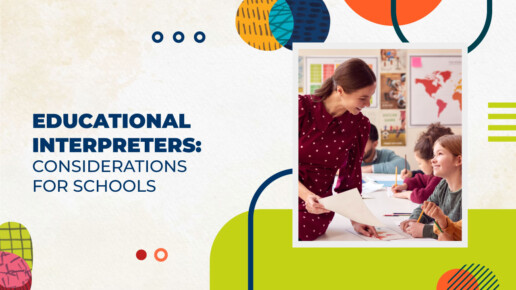Educational Interpreters: Considerations for Schools
In today’s diverse and inclusive educational landscape, the role of educational interpreters has become increasingly vital. These professionals, often referred to as Metaphrasis interpreters, play a crucial role in ensuring that students with language barriers have equal access to education. In this blog explores the multifaceted responsibilities of educational interpreters, the challenges they face, and the significant impact they have on the academic success of students.
Understanding the Role of Educational Interpreters
Educational interpreters are highly skilled professionals who bridge the gap between students who have limited English proficiency and the educational environment. Their primary responsibility is to facilitate effective communication between teachers, students, and parents, ensuring that language barriers do not hinder the learning process.
The Educational Interpreter’s Skill Set
To excel in their role, educational interpreters must possess a diverse skill set. This includes proficiency in multiple languages, excellent listening and speaking skills, cultural sensitivity, and an understanding of educational terminology. These skills enable them to accurately convey complex subject matter.
Facilitating Classroom Communication
One of the core functions of educational interpreters is to interpret classroom lectures and discussions in real-time. This ensures that students with limited English proficiency can actively participate in class, ask questions, and engage in discussions, just like their English-speaking peers.
Overcoming Challenges
Educational interpreters face unique challenges in their line of work, including:
Balancing Neutrality
Interpreters must maintain a neutral stance when interpreting, not adding their own opinions or biases to the conversation. This can be challenging, especially when discussing sensitive or controversial topics.
Handling Technical Language
In subjects such as mathematics or science, interpreters encounter specialized vocabulary that requires a deep understanding to accurately interpret. They must constantly expand their knowledge base to meet these challenges.
Impact on Academic Success
The presence of educational interpreters has a profound impact on the academic success of students with language barriers.
Improved Access to Curriculum
With the assistance of interpreters, students can access and understand the curriculum, leading to better grades and a deeper comprehension of the material.
Enhanced Confidence and Participation
Educational interpreters help boost students’ confidence by enabling them to actively participate in class. This leads to increased engagement and a more positive learning experience.
Conclusion
Educational interpreters, often working under the banner of Metaphrasis, are unsung heroes in the educational system. Their dedication to facilitating communication and breaking down language barriers contributes significantly to the academic success of students. As our educational environment keeps changing, their contribution stays essential and irreplaceable.”

